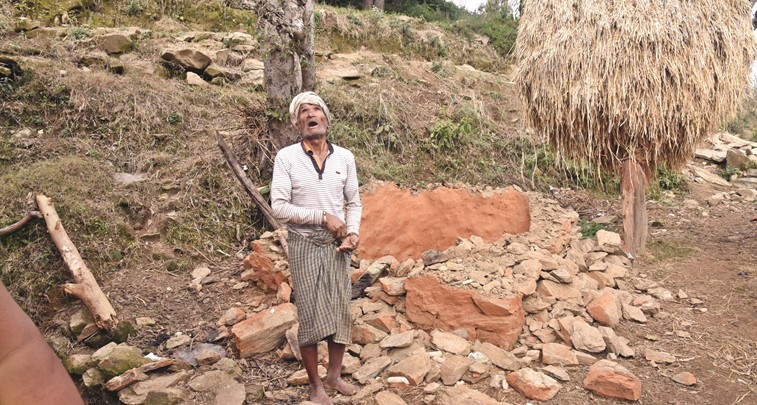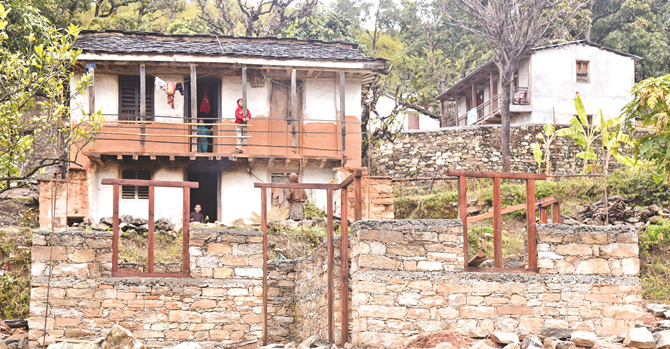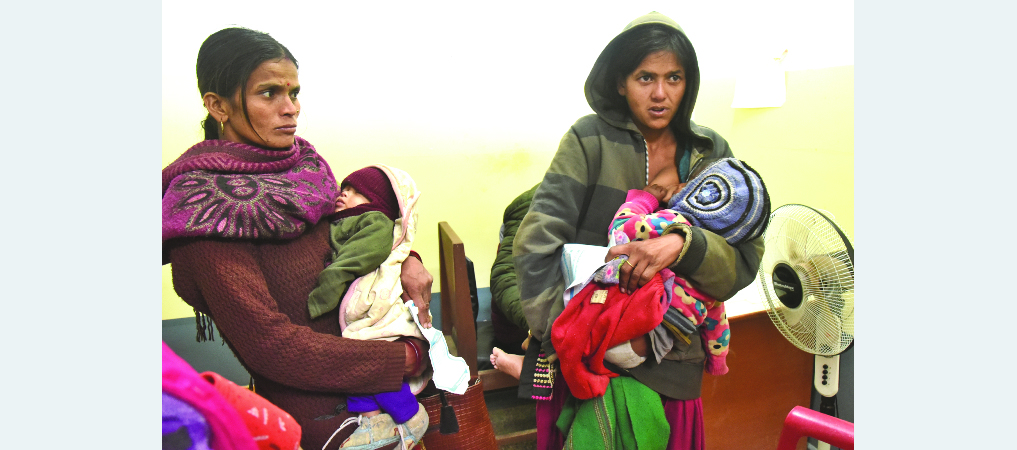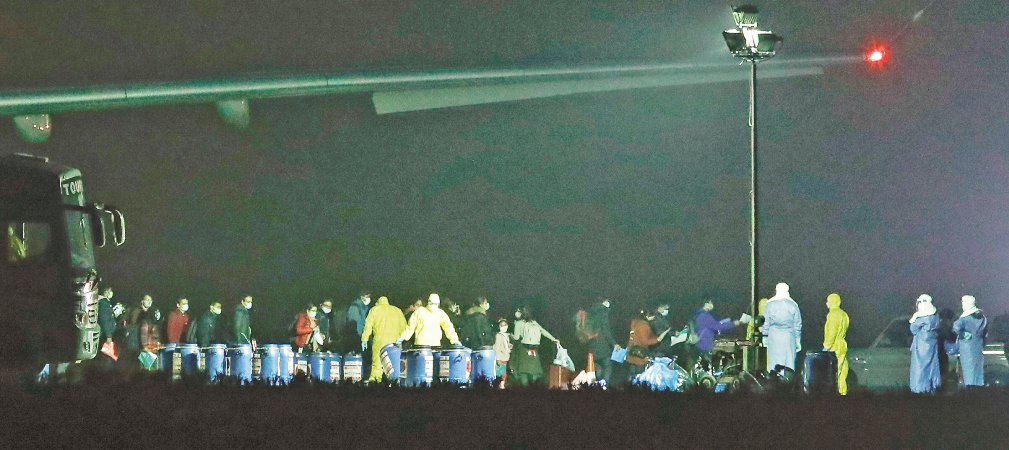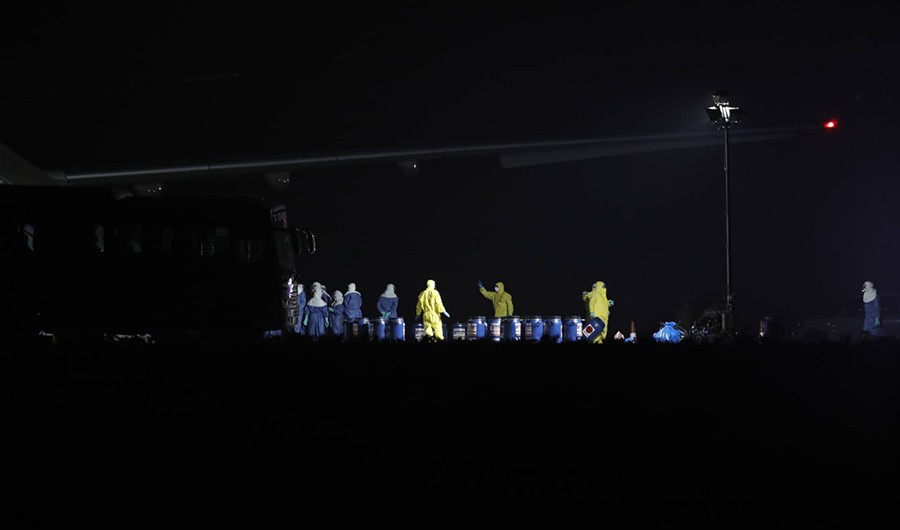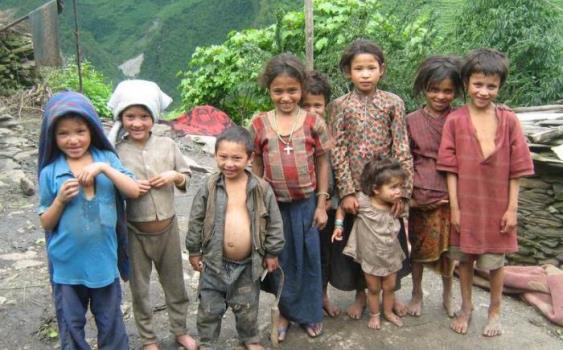Breastfeeding is natural vaccine for children: Experts

By Ajita Rijal
Kathmandu, Aug. 2: As World Breastfeeding Week kicked off from Sunday with a slogan, ‘Protect Breastfeeding: A Shared Responsibility’, health experts are calling all stakeholders to encourage mothers to continue optimal breastfeeding practices during the ongoing COVID-19 pandemic.
Mothers should be encouraged to initiate breastfeeding within the first hour of birth, exclusively breastfeed their infants during the first six months, and continue up to two years and beyond, to protect their babies from various illnesses, said doctors.
As per Nepal Demographic Health Survey 2016, infant and young child feeding practices are sub-optimal, with about 65 per cent exclusive breastfed under 6 months and about 55 per cent colostrum fed within an hour of birth.
Only 41 per cent of children aged 4–5 months were exclusively breastfed compared to 80 per cent in 0–1 months and 72 per cent in 2–3 months. However, all infants had received at least some breast milk by 4–5 months of age.
However, according to Nepal Multi Indicator Cluster Survey (MICS) 2019, about 42 per cent were colostrum fed within an hour of birth and 62 per cent exclusive breastfed under 6 months. According to the survey, 87.6 per cent were breastfed for full term.
The national survey shows that breastfeeding culture and frequency are declining due to various reasons. In 2011, it was reported that 70 per cent of mothers breastfed. In 2016, it decreased to 66 per cent and in 2019 it fell further down to 62 per cent, which is a matter of concern in children’s health.
Breastfeeding is the best source of nourishment for infants and young children, and a proven lifesaving strategy that helps protect children against many illnesses. Breastfeeding is the best and natural vaccine that develops immunity system of baby, said Dr. Kedar Raj Parajuli, chief of Nutrition Section at Department of Health.
Breastfed children are less likely to be obese or overweight and are less prone to non-communicable diseases later in life. Increasing breastfeeding to near-universal levels globally could save more than 820,000 lives and prevent an additional 20,000 cases of breast cancer in women each year.
“Breastfeeding provides countless health benefits for children and their mothers,” said Dr. Taranath Pokharel, Director at Family Welfare Division. “We must discourage other products against breastfeeding and encourage it for overall development of the child,” suggested Dr. Pokharel.
The status of breastfeeding has been worsened by frequent violations of the International Code of Marketing of Breastmilk Substitute. Unless the marketing of breastmilk substitute is banned, it is challenging to ensure complete breastfeeding. The Global Breastmilk Substitute sales increased to Rs. 72 trillion in 2019 which was increased from Rs. 45 trillion in 2014, which shows the industry’s large competitive claim on infant feeding, said nutritionist Parajuli.
The concerned authoritites must strengthen the implementation and monitoring of the International Code of Marketing of Breastmilk Substitute to protect mothers from an inappropriate marketing of Breastmilk Substitutes, added Parajuli.
The aggressive marketing for lactogen is unethical and causes harm to both mothers and babies, said Dr. Pokharel and added that inspection of the products is going on.
As the bottle nipple is more addictive for babies and it discourages babies from suckling on their mother’s milk, all the healthcare providers must discourage bottle feeding and encourage breastfeeding within first hours of birth, said Parajuli. Nurses, doctors and hospitals must ban recommending lactogen, added Parajuli.
Every mother must understand that they can produce enough milk for their babies, said Roshni Tuitui, the head of nursing department at the Ministry of Health and Population (MoHP).
When one becomes mother, they can produce milk naturally, which will be more than enough for their babies, said Tuitui. “Women should be psychologically prepared to feed their baby.”
“It is the responsibility of all to protect and support mothers to breastfeed their children,” said Tuitui adding exclusive breastfeeding protects women from ovarian and breast cancer risks.
“Optimal breastfeeding is so important that it is one of the most effective ways to ensure overall child health.”
As the benefits of breastfeeding are significant, mothers with confirmed or suspected COVID-19 infections and who are isolating at home should continue breastfeeding with necessary and appropriate health protocols during feeding, said Dr. Krishna Prasad Poudel, spokesperson at the MoHP.
It is safe to continue breastfeeding if baby is suspected or confirmed to have COVID-19, added Dr. Poudel.
As exclusive breastfeeding needs adequate leave for working women, we are successful in providing them 90 days of obstetric leave, said Dr. Poudel adding, “We are still working to ensure six months of leave for new mothers, to provide adequate time for feeding their baby.”
Other factors to support breasfeeding include increasing the number of hospitals with Baby Friendly Hospital Initiative accreditation. Making conducive environment for breastfeeding at the workplace is another requirement, said Dr. Poudel.
Recent News

Do not make expressions casting dout on election: EC
14 Apr, 2022
CM Bhatta says may New Year 2079 BS inspire positive thinking
14 Apr, 2022
Three new cases, 44 recoveries in 24 hours
14 Apr, 2022
689 climbers of 84 teams so far acquire permits for climbing various peaks this spring season
14 Apr, 2022
How the rising cost of living crisis is impacting Nepal
14 Apr, 2022
US military confirms an interstellar meteor collided with Earth
14 Apr, 2022
Valneva Covid vaccine approved for use in UK
14 Apr, 2022
Chair Prachanda highlights need of unity among Maoist, Communist forces
14 Apr, 2022
Ranbir Kapoor and Alia Bhatt: Bollywood toasts star couple on wedding
14 Apr, 2022
President Bhandari confers decorations (Photo Feature)
14 Apr, 2022



